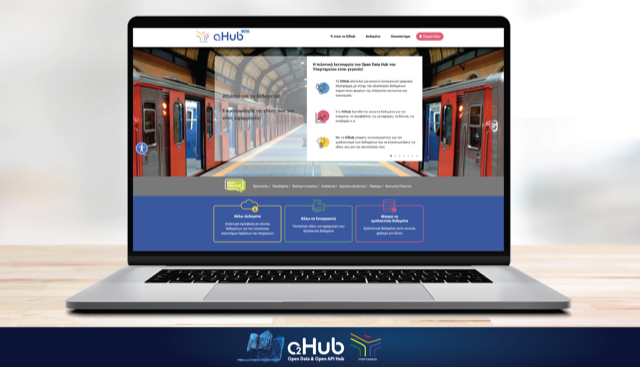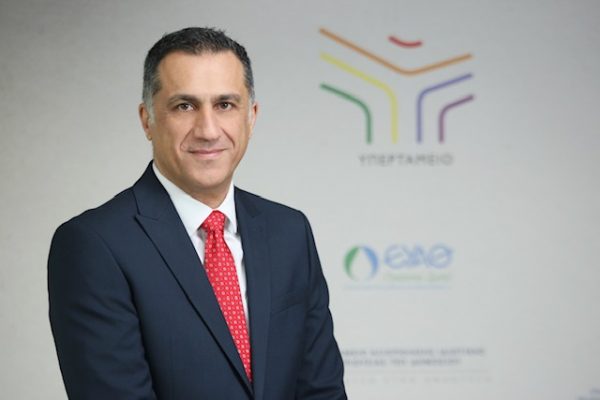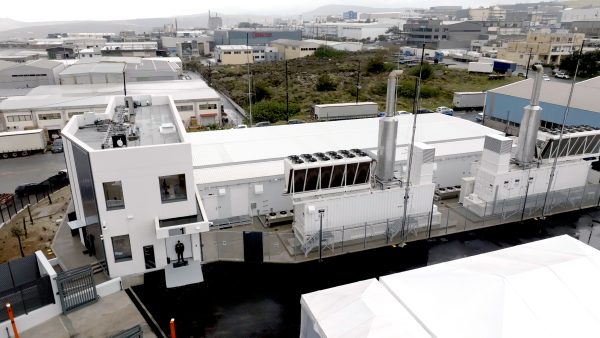
The Superfund opens the door to the open data market that in 2025 will be worth up to 334.2 billion euros. Today, in the pilot phase, the open data node of the Superfund, the O2 Hub, already hosts 41 data sets from seven subsidiaries in 10 thematic areas.
From the tickets bought for the daily means of public transport and the detailed mapping of the 54 elevators available to the Electric railway stations to the total of Athens water distribution connections in 92 areas of Attica and the quality characteristics of the water from sampling and analysis of Thessaloniki water authority, open data create opportunities for the development of new services and applications and new fields in research.
The O2 hub (data.hcap.gr) is the first Open Data and Open API Hub in Greece, in which the subsidiaries of the Hellenic Corporation of Assets and Participations (HCAP) join forces. The platform was implemented by Crowdpolicy. It aims to exploit the dynamics of open data, through the creation of an open, technological and human ecosystem of knowledge, cooperation and data.
This is a crucial step of the Superfund in the course of the digital transition, as it provides access to selected open data sets of its subsidiaries, infrastructure, environment, networks, transport, water, food and supply chain, postal services, utilities and real estate management. The topics of energy and technology will be activated soon. It is estimated that in sectors with great impact and prospects, open data trigger growth of 15.7%.
One of the most current examples of utilization of open data is the cooperation between the Thessaloniki water company and Thessaloniki University for the detection of coronavirus in the urban wastewater of Thessaloniki. In this case, the data consist of wastewater samples received daily by a university team from the 24-hour automatic sampler located in Sindos, together with the measurements from the daily analyses of the pollution parameters. Then, the relevant analysis and evaluation is done, which is one of the scientific “tools” for taking health measures for the benefit of public health.
Thessaloniki water company’s immediate plans include the examination of wastewater for other pathogens or drugs, so that the sewerage network in the future will be a real health periscope for the benefit of public health.
The huge open data market and the opportunity of Greece
This is therefore an aspect of the value of open data, which are an important asset for the subsidiaries of the Superfund and produce value for the benefit of the economy, entrepreneurship, the environment. Smart service points, digital postman, smart meters, smart lease contracts for blockchain technology, IoT home and travel applications, combined transport applications, online booking applications, all these modern tools are data sources.
The value that open data produces internationally is increasing. It amounted to 184.45 million euros in 2019, according to a study by the European Data Portal, while it is estimated that in 2025 it will range from 199.51 – 334.2 billion euros. Their footprint at work for 2019 amounted to 1.09 million employees and is projected to reach 1.12 – 1.97 million in 2025.
At the same time, they generate benefits for citizens, who save, for example, 27 million hours from their travels, while energy savings thanks to open data amount to 5.8 Mtoe. It also saves 79.6 billion euros in bills from electricity generation. In the sensitive health sector, the costs of care are limited by 312,000-400,000 euros due to the timely provision of first aid.

As Mr. Stefanos Giourelis, Deputy Chief Executive Officer of the Superfund, underlined, during yesterday’s presentation of the node to journalists, “open data is the raw material for knowledge, research and ultimately development.” He also noted that this is the first time for Greece that public companies cooperate to jointly provide data on a scale through open programming interfaces.
“Greece has all the guarantees to become a data hub in Southeast Europe, not only because of its geographical location, but also because of its infrastructure,” he said.
Universities, research institutes, startups, public and private organizations participate in the ecosystem that is “built” around open data. Participants have the opportunity to obtain free of charge the necessary information that will help them develop new services for the benefit of society as a whole. “We provide the vehicle,” said Aphrodite Sevasti, chief technology officer at the Superfund.
The goal of the Superfund is the continuous upgrade of the Hub and its enrichment with more data sets than all of its subsidiaries and participations, thus ensuring its user viability. At the same time, it invests in the development of automation for the updating of data and creates the necessary open data culture throughout the group with the closer cooperation between the subsidiaries for the exchange of best practices, as well as for the further utilization of the Hub as a reference point in the wider ecosystem.
Latest News

Greek €200M 10Y Bond to be Issued on April 16
The 3.875% fixed-interest-rate bond matures on March 12, 2029, and will be issued in dematerialized form. According to PDMA, the goal of the re-issuance is to meet investor demand and to enhance liquidity in the secondary bond market.

German Ambassador to Greece Talks Ukraine, Rise of Far Right & Tariffs at Delphi Economic Forum X
Commenting on the political developments in his country, the German Ambassador stressed that it was clear the rapid formation of a new government was imperative, as the expectations across Europe showed.

Athens to Return Confiscated License Plates Ahead of Easter Holiday
Cases involving court orders will also be excluded from this measure.

Servicers: How More Properties Could Enter the Greek Market
Buying or renting a home is out of reach for many in Greece. Servicers propose faster processes and incentives to boost property supply and ease the housing crisis.

Greek Easter 2025: Price Hikes on Lamb, Eggs & Sweets
According to the Greek Consumers’ Institute, hosting an Easter dinner for eight now costs approximately €361.95 — an increase of €11 compared to 2024.

FM Gerapetritis Calls for Unified EU Response to Global Crises at EU Council
"Europe is navigating through unprecedented crises — wars, humanitarian disasters, climate emergencies," he stated.

Holy Week Store Hours in Greece
Retail stores across Greece are now operating on extended holiday hours for Holy Week, following their Sunday opening on April 13. The move aims to accommodate consumers ahead of Easter, but merchants remain cautious amid sluggish market activity.

Green Getaway Ideas for Easter 2025 in Greece
Celebrate Easter 2025 in Greece the sustainable way with eco-farms, car-free islands, and family-friendly getaways rooted in nature and tradition.

Civil Protection Minister Details Summer Firefighting Plans at Delphi Forum
At the 10th Delphi Economic Forum, Minister of Climate Crisis and Civil Protection Yiannis Kefalogiannis discussed Greece's plans for the upcoming fire season.

How Shops and Markets Will Operate During Easter Holy Week
The Easter holiday schedule has been in effect since April 10, with retail stores open Palm Sunday, and most supermarkets also operating to meet consumer demand for Easter shopping








































 Αριθμός Πιστοποίησης
Αριθμός Πιστοποίησης